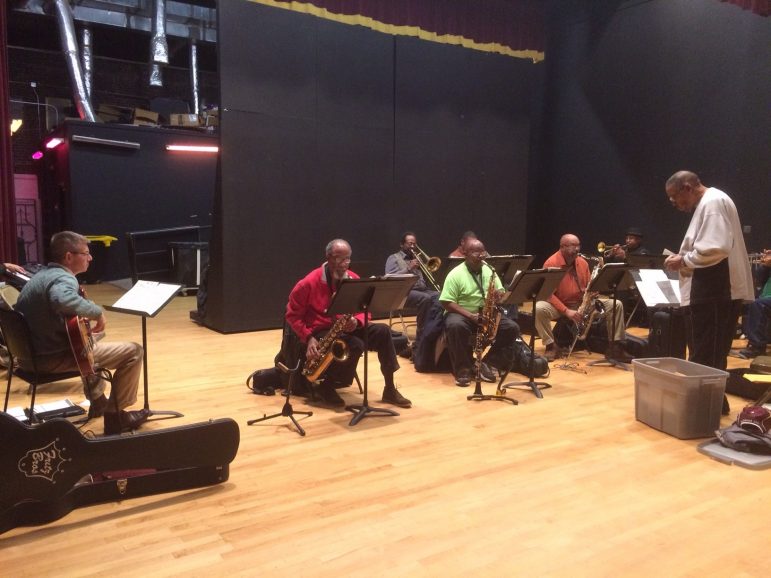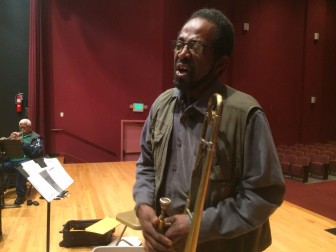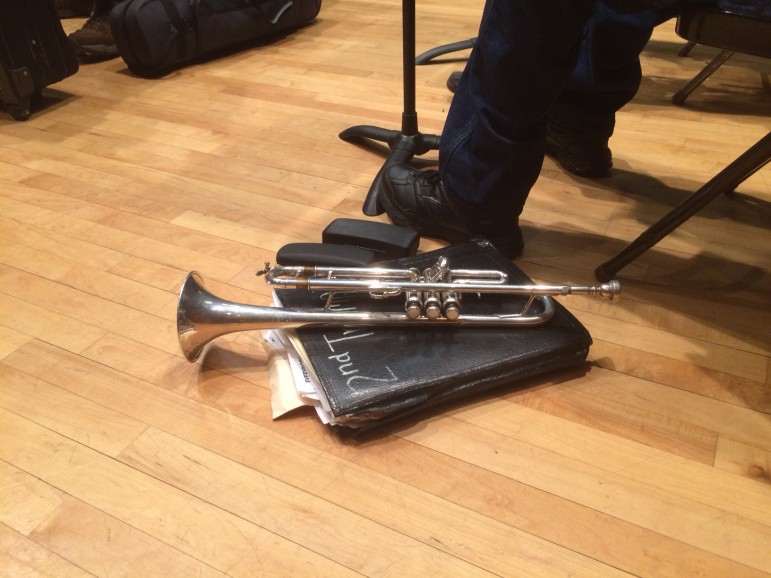The days of the Duke Ellington big bands are long gone, but one group in Birmingham is keeping that spirit alive. The Heritage Band has been a musical presence in the Magic City for decades. It was founded on traditional big band principles, which demanded members be trained to read sheet music and respect the ensemble mentality.
The Heritage Band is a spunky bunch. At a recent rehearsal, the band accompanied 69-year-old trombonist and singer Melvin White as he sang a cover of Pharrell Williams’ “Happy.” White’s been with the Heritage Band for nearly three decades, but before that, “I hadn’t played a horn in 20 years, since high school,” he says. “So, they suggested that I go start jamming on Sunday and my lips came back, my playing came back so I decided to join the Heritage Band. Been here ever since.”
It might seem crazy hearing Pharrel Williams covered by an orchestra, but the Heritage Band is well versed in a blend of contemporary music and jazz. Retirees, engineers, teachers and full-time musicians make up the roughly 20-member band. Some have been with the band for decades, others just a few months. But no one has been with the group longer than 84-year-old band director Tolton Rosser.
“I guess I’m one of the last of the old warhorses,” he says. “But all the fellows who originally did all the good stuff that I get credit for have all passed on. I was a little pup coming along behind them”
The band was founded in 1976 by the late saxophonist J.L. Lowe, who later founded the Alabama Jazz Hall of Fame. Lowe and the other musical founding fathers attended all-black Parker High School in northwest Birmingham. Many became music teachers and school administrators around Alabama, and came together as the Heritage Band for special performances, just as the band does today. Rosser says at first the band stuck to a strict code of musical conduct.
“This New Orleans style throw your hat down on the floor people throw you a quarter while you play and play by ear and all this kind of thing was out the window,” he remembers.
If you couldn’t read sheet music, you couldn’t play with the Heritage Band. The musicians prided themselves on their training and ability. And that knowledge was passed down like sacred folklore from generation to generation. Rosser came up just behind J.L. Lowe and he too has shared his wisdom with younger musicians. As time progressed and music changed, the band started blending genres and allowing more interpretive freedom.
“There is a feeling of the old negro spirituals that was sung in church that we built our jazz on,” Rosser says.
One thing the Heritage Band is missing are female musicians. They have a couple of very talented female singers who perform with the band, Rosser says, but there are no women in the orchestra and he has a theory about that.
“Somebody told girls a long time ago you can’t play trumpet,” he says.
He says for years, girls were told their lungs weren’t big and powerful enough to play brass and wind instruments, and that pursing their lips would cause deformities. But Rosser says that’s just not true.
The days of the big bands are gone, and they probably aren’t coming back. They’ve been replaced by DJs and digital music technology. But Rosser says the Heritage Band plays on, entertaining crowds at corporate functions and special events around Birmingham, reminding audiences of a time when tuxedo-clad musicians ruled the stage.




